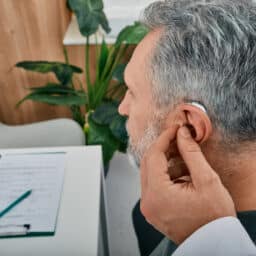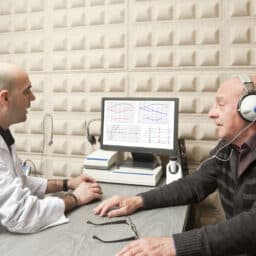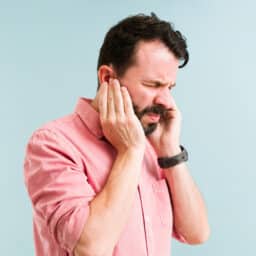How Does Hearing Change Over Time?

Our hearing ability allows us to communicate, enjoy music and stay aware of our environment. However, as we age, our hearing ability naturally declines in a condition known as presbycusis. Understanding why this happens and recognizing the signs can help manage and mitigate its effects, maintaining a better quality of life. What is Presbycusis? Presbycusis,…
Is My Tinnitus Temporary or Permanent?

Tinnitus is characterized by the perception of noise—such as ringing or buzzing—in the ears without any external sound source. Many people will hear the occasional ringing in their ears following a loud concert or movie, otherwise known as a temporary threshold shift. Others, however, are burdened by the constant presence of the symptom. Let’s take…
What Are the Steps of Hearing Loss Treatment?

There are currently more than 1.5 billion people in the world living with hearing loss. While it can feel a little alarming to notice that voices sound muffled or the television is always too low, learning about the steps of hearing loss treatment can help demystify the experience. Hearing Tests The first step in hearing…
What To Do If Your Hearing Aids Have Feedback?

Hearing aids are a great technological device that allows those with hearing loss to feel more connected to their loved ones than ever. They’re also common with nearly 28.8 million Americans potentially benefitting from them. However, it can be irritating, painful or embarrassing if they happen to function improperly. One such improper function is feedback….
What To Know About High-Frequency Hearing Loss in Children

High-frequency hearing loss is difficulty in hearing high-pitched sounds. It’s typically caused by damage to the hair cells in the inner ear and often leads to difficulty in understanding fast speech. It can occur at any age and is most common among older adults. However, one study showed as many as 14.2% of children within…
What To Know About Temporal Bone Tumors

Tumor can be an upsetting word. Hearing your provider say “tumor” is probably enough to cause stress and maybe even a little perspiration. While feeling stressed is very normal, taking a second to learn about the multiple different types of temporal bone tumors and treatments is an excellent way to calm your nerves surrounding the…
How Are Multiple Sclerosis and Hearing Loss Connected?

Multiple Sclerosis (MS) is an autoimmune disease in which the immune system attacks the myelin, or protective covering, of the brain, spinal cord and eyes. As a result, those with MS experience symptoms like muscle pain and weakness and problems with cognitive ability and memory. The disease progresses with remissions and relapses. Approximately 2 million…
Is Notch Therapy an Effective Management Option for Tinnitus?

Hearing a ringing or buzzing noise that you can’t attribute to an external source is likely a sign that you’re experiencing tinnitus. Affecting approximately 10% of the U.S. adult population, tinnitus can have a significant impact on your life. A few adverse effects of tinnitus may include but are not limited to: Stress and anxiety…
How Hearing Aids Improve Your Social Connections

Hearing loss can often have an adverse effect on the relationships in our lives. A survey by Cochlear Americas found that 35% of respondents with hearing loss felt that their romantic partner suffered most due to their condition, followed closely by family, friends and coworkers. Treating your loss with hearing aids can be a great…
Can Hearing Aids Make Watching TV Easier?

Hearing loss is a common chronic condition that affects millions of Americans. Data tells us that nearly 30 million adults in the U.S. could benefit from using hearing aids. Hearing aids make all aspects of life easier. They can help you follow along during important work meetings, enjoy dinner out with your family at Fowler…
